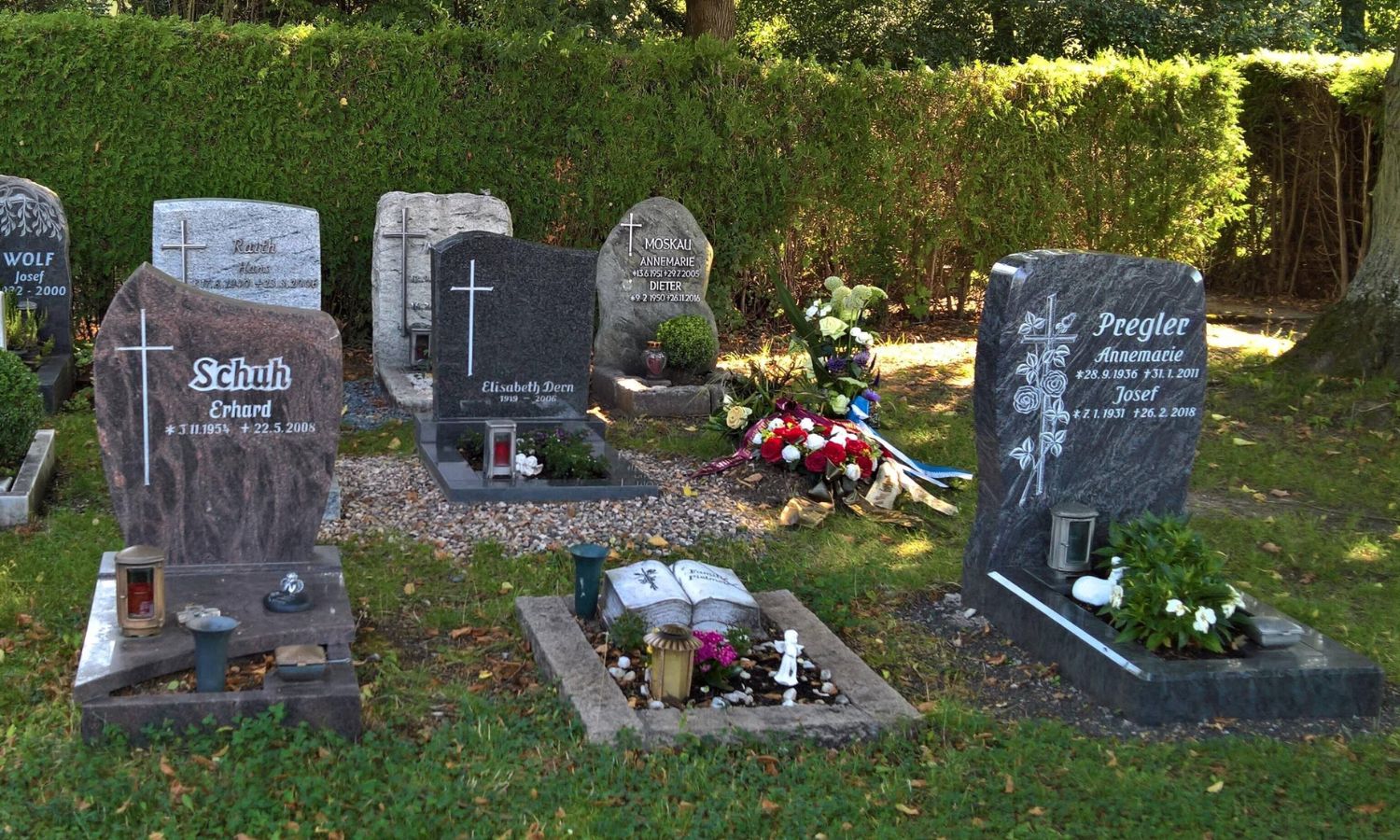



Enab Baladi – Hassan Ibrahim
The anguish and sorrow of losing a loved one are compounded by the challenges of burial procedures, requirements, and costs for Syrians in Germany. This burden is even greater if the deceased is to be transported back to Syria for burial.
Germany, where around a million Syrians reside, has varied and diverse burial regulations, methods, and locations. These differences become obstacles for Syrians accustomed to specific burial rituals and methods, and for those who wish to be buried in Syria, in different regions of control.
Last April, a young man named Mohammad lost his mother in Hamburg. She had wished to be buried in her city, Damascus. Mohammad considered this a duty, especially since his mother frequently reminisced about her memories of Damascus, always saying, “Son, when I die, bury me in Sham (Damascus).”
Mohammad told Enab Baladi that he was overwhelmed with grief and immediately contacted the family doctor to confirm the death and issue a formal report. He then sought advice from relatives and social media groups about transporting his mother’s body to Damascus and the necessary procedures.
After gathering similar responses, Mohammad reached out to a burial company and provided essential documents his mother had, including her German ID card, passport, marriage certificate, and his father’s ID and passport.
The company handled the paperwork with the municipality to obtain a death certificate, then with the health ministry to get a special passport for the body, and finally booked a flight ticket to transfer the body to Beirut. From there, it was transported by car to Syria, passing through the required procedures at the Lebanese-Syrian border, costing up to 4,100 euros (1 euro is equivalent to 15,800 Syrian pounds).
Mohammad could not express his feelings but described the ordeal as a “calamity” that “broke his back.” He added that the four-day process was agonizing, full of confusion and anxiety.
Similarly, Yasser, who resides in Cologne, faced a similar process when his father passed away in September 2023. He managed to transfer his father’s body to Aleppo for a fee of 3,800 euros, completing the burial in two days.
Syrians frequently ask questions on online groups in Germany about the procedures for transferring deceased bodies to Syria, seeking contacts of experienced companies, and sharing burial or transport experiences.
The Al-Aqsa Burial Foundation in Germany told Enab Baladi that the cost of transporting a body to Syria ranges from 4,000 to 5,000 euros, depending on the region.
Registering a death at the Syrian Embassy in Berlin requires several documents: a Syrian ID (original Syrian passport or Syrian ID) with two copies, a German death certificate authenticated by the German Foreign Ministry, and a copy of it.
Other required documents include a Leichenpass (mortuary passport) to transport the body to Syria if not buried in Germany, a medical cause of death certificate, and two copies of the death certificate.
The embassy’s website states that all documents must be original and authenticated by the German Foreign Ministry. The consular registration fee for the applicant is 50 euros if not previously registered at the embassy.
The death registration fee is 25 euros within the legal period of nine months. If exceeded, a 25-euro fee plus a 50-euro fine is imposed. After one year from the date of death, a death report must be filed at the embassy, with a total fee of 145 euros (including fines).
Various companies and organizations in Germany provide burial services, following Islamic or other methods, handling everything from death to burial. Some cemeteries have sections dedicated to Muslim burials.
Al-Aqsa Foundation explained to Enab Baladi that Islamic burial in Germany begins with death registration and burial permit, followed by scheduling with a cemetery offering Muslim sections. The process includes washing, shrouding, performing funeral prayers, and burial according to Islamic law. The cemetery appointment varies from two to four days, excluding official holidays.
The cemeteries vary in requiring a coffin and differ in fees ranging from 3,000 to 4,500 euros. Al-Aqsa Foundation noted that graves are leased for 20 years, renewable.
Different grave types and fees, the deceased’s will, and funeral costs influence the choice of cemetery, funeral services, and grave maintenance.
The Consumer Organization in Germany (Stiftung Warentest) estimated total burial costs from 5,830 euros to 19,740 euros, based on services, documents, funeral, grave type, headstone, and coffin.
Due to rising cemetery fees in recent years, outdoor burial options, like forest burials, have grown, with over 100 forest burial sites across Germany.
Sea burial, the cheapest option, starts at 3,859 euros, varying by sea and funeral ceremonies. The main condition for sea burial is cremating the body and only burying the ashes at sea.
Northwestern Syrian regions, under the Syrian opposition, have border crossings with Turkey. These crossings handle various entries, including visits, voluntary returns, repatriation, trade, pilgrimage, and deaths.
Mazen Alloush, media director at Bab al-Hawa border crossing, told Enab Baladi they accept deceased bodies entering northwestern Syria without categorizing their origin, whether from Europe or other places.
Alloush stated that in 2023, the crossing received 2,814 bodies (982 men, 1,091 children, and 741 women), including patients who died in Turkey and Syrians residing in Turkey, with few entries from outside Turkey.
In the first three months of 2024, the crossing received 355 bodies (124 children, 153 men, and 78 women), noting that deaths from Europe were minimal.
The process involves receiving the body from the Turkish Health Ministry, managed by a specialized funeral team at the crossing, transferring the body from the Turkish side to the Syrian gate. The deceased’s family awaits at the gate, signs for the body, and transports it for burial.
if you think the article contain wrong information or you have additional details Send Correction